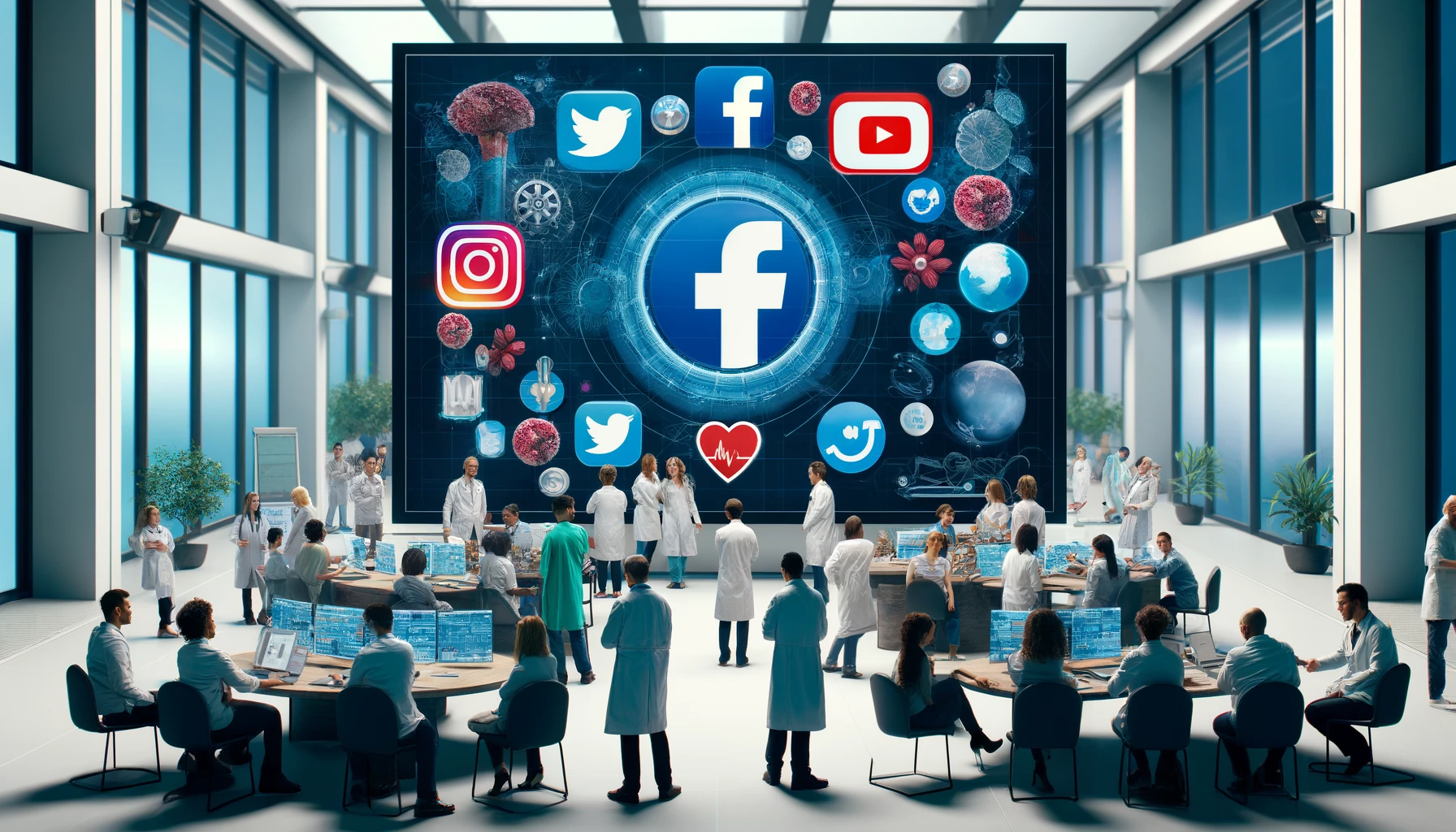Introduction
In today’s digitally interconnected world, social media has become an integral part of our daily lives. From sharing personal moments to staying updated on global events, social media platforms offer a myriad of opportunities for communication and networking. However, beyond its recreational use, social media holds immense potential for healthcare professionals to engage, educate, and empower both patients and peers. In this blog, I will show you power of social media.
1. Building Professional Networks
Social media platforms provide healthcare professionals with unprecedented opportunities to connect and collaborate with peers from around the globe. Through platforms like Twitter, LinkedIn, and professional forums, professionals can join discussions, share insights, and seek advice on complex medical cases. According to a survey conducted by the American Medical Association, nearly 65% of physicians reported using social media for professional purposes, highlighting its growing importance in the medical community.
2. Patient Education and Empowerment
Social media serves as a powerful tool for patient education and empowerment. Healthcare professionals can leverage platforms like Facebook, Instagram, and YouTube to share valuable health information, raise awareness about prevalent diseases, and debunk myths and misconceptions. Studies have shown that patients are increasingly turning to social media for health-related information, making it imperative for healthcare professionals to be active participants in these online conversations.
3. Enhancing Public Health Campaigns
Social media campaigns have proven to be highly effective in promoting public health initiatives and driving behavioral change. Healthcare professionals can utilize platforms like Twitter hashtags, Facebook groups, and Instagram stories to disseminate important health messages, encourage preventive behaviors, and mobilize communities during disease outbreaks or public health emergencies. For instance, during the COVID-19 pandemic, social media played a crucial role in spreading awareness about safety protocols, vaccination drives, and reliable sources of information.
4. Fostering Patient Engagement and Support
Social media platforms offer healthcare professionals an avenue to engage directly with patients in real-time, fostering a sense of community and support. Through platforms like patient forums, online support groups, and virtual Q&A sessions, professionals can address patient concerns, provide emotional support, and facilitate peer-to-peer interactions. This not only enhances patient satisfaction but also strengthens the patient-provider relationship, leading to better health outcomes.
5. Staying Updated on Medical Advances
In the rapidly evolving field of healthcare, staying updated on the latest medical advances and research findings is essential for providing quality patient care. Social media platforms serve as valuable sources of medical news, research articles, and conference updates. By following reputable medical journals, institutions, and thought leaders on platforms like Twitter and LinkedIn, healthcare professionals can stay abreast of cutting-edge developments in their respective fields.
Conclusion
The power of social media for healthcare professionals cannot be overstated. From building professional networks to empowering patients and driving public health campaigns, social media offers a multitude of opportunities for professionals to make a positive impact in the digital age. By embracing social media responsibly and leveraging its potential effectively, healthcare professionals can enhance patient care, advance medical knowledge, and contribute to healthier communities worldwide.
Also read: 6 Healthcare Social Media Marketing Strategies – BaAma Consultant


1 thought on “Power of social media for healthcare professionals”